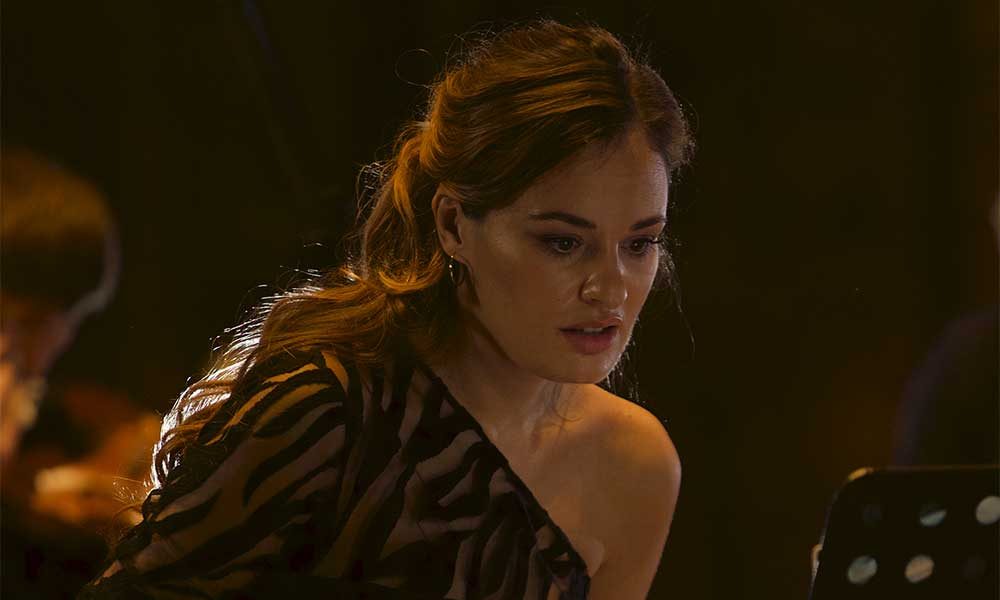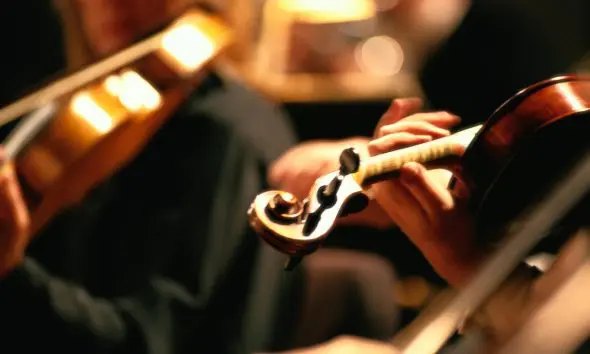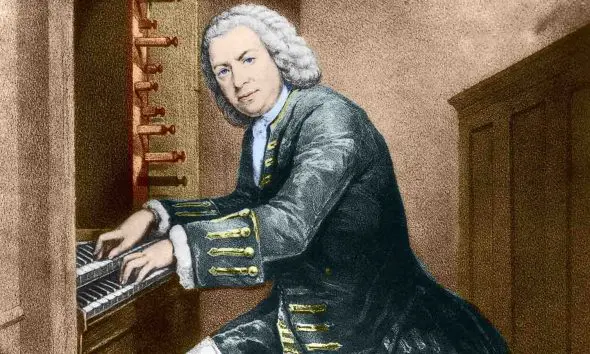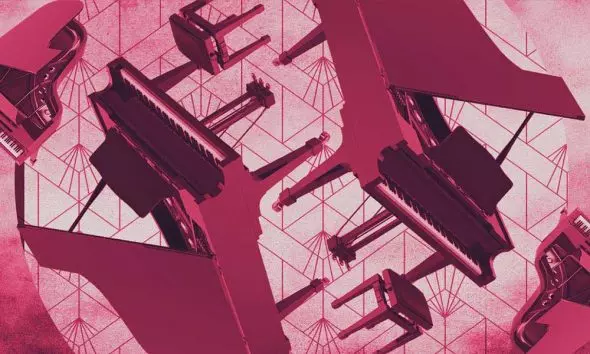Violinist Nicola Benedetti Explores The Baroque
Nicola Benedetti spoke to us about her chart-topping album ‘Baroque’ featuring concerti by Vivaldi and Geminiani’s arrangement of Corelli’s ‘La Folia’.

Nicola Benedetti first shot to fame in her teens, playing the great ‘war-horse’ concertos of the Romantic repertoire and winning the BBC Young Musician of the Year in 2004. This summer, though, her direction of travel has been distinctly different: she has been plunging back in time to early 18th-century Italy. Her new album, entitled simply Baroque, topped the UK’s Classical Artist Chart, Specialist Classical Chart, and Billboard’s Traditional Classical Albums Chart.
Baroque features concerti by Vivaldi and ‘La Folia’
Baroque features a selection of concerti by Vivaldi plus Geminiani’s arrangement of Corelli’s ‘La Folia’, one of the oldest western classical themes which has been arranged by many composers. The album is full of irresistible musical sunshine, not only paying tribute to Nicola Benedetti’s own Italian roots, but bringing her together with a group of baroque specialist musicians who are among the best in the business. With the distinctive shimmer of guitar, theorbo and harpsichord, the subtle and flexible sound of gut strings and the sheer joy of making music together after a long pandemic-induced drought, the ensemble takes wing with heart and soul.
Baroque Virtual Sessions
The album comes hot on the heels of a remarkable innovation from the Benedetti Foundation: an online summer school called Baroque Virtual Sessions, devoted to practical insights into music from the 17th and 18th centuries and available to everyone, whether or not you play an instrument. Including improvisation, dance, musical structure, masterclasses, pre-recorded lessons and more, it has welcomed ages and levels from beginners to conservatoire students and above, as well as listeners who simply want to enjoy it. Last, but not least, Nicola Benedetti’s eight baroque concerts at Battersea Arts Centre in July are followed by a performance on 14 August at the Edinburgh Festival where she is artist-in-residence.
If you are a classical music novice, the baroque era is, according to Nicola Benedetti, the best possible place to start exploring it. “It’s potentially the most joyous, welcoming, vivacious, open-armed music there is,” she says. “Coupled with the Italian operatic traditions of drama, of light, shade and extremes, of clear storytelling and rhetoric, rhythmical engine and a bass-line that carries everything you could possibly need, all these elements come together to make a type of music that is powerful, but is, in the best sense of the word, highly entertaining.”
The Baroque recording sessions were organised at short notice
Baroque music’s requirements in terms of playing style are radically different from that of more recent compositions; despite having amassed plenty of experience in the field, Nicola Benedetti says she still finds it demanding to switch between them at short notice. And short notice was the only way her recording sessions could be organised in December amid the stop-start-stop lockdowns. “I ran straight from playing a whole series of solo recitals,” she says, “to having 24 hours to turn everything around, to get back into baroque mode and play these concertos that either I had just learned or had played several years ago. It was quite a challenge.”
“I think you learn most from playing alongside people”
Nicola Benedetti first started exploring the baroque repertoire when she was about 18: “I sought lessons from a number of people who had dedicated their lives to historically informed baroque practice,” she says. “I think you learn most from playing alongside people and being in an intense state of observation, trying to absorb exactly what they’re doing and how they’re doing it.”
‘Early’ music’s current celebrity status is nevertheless hard won: this was once the unlikely scene of a musical culture war. During the 1980s, a movement gathered pace advocating the reconstruction of original performance style through study of the treatises, instruments and methods of the period. This entailed a radical shift of aesthetic – reducing or eliminating vibrato, setting up the instruments another way, using curved baroque bows and gut strings instead of steel were just the start – and not everyone was too pleased. Benedetti says that insults were traded both ways, with inflammatory results.
“If you feel so passionate about something that is not being done to its highest potential and you are trying to create unbelievable, cataclysmic change,’” she reflects, “and then there was so much absolute, unequivocal disrespect towards those developing this new style of playing – if there was a rather too harsh orthodoxy forced by those that engaged in historically informed performance practice, I can understand why. It took a lot of guts, and a lot of fire, to be able to identify that change.”
Fortunately, all that is over. “We’re in a different period of change, with more openness,” she says. “Much of that progress is now commonplace, accepted and loved and it’s not disrespected or seen as a threat. A lot of society is like that anyway: a melting pot, a mixing ground where there is no one way to be. Now we’re open to the idea that actually there’s a lot of different ways to do this, a number of options, all of which are acceptable.”
The challenge is getting back to concerts with mass audiences
For the post-pandemic future, Nicola Benedetti has plenty of plans and hopes, again pointing towards a sense of plurality and possibility. Her video series, ‘With Nicky’, offering online violin tuition sessions via her Benedetti Foundation, became hugely popular after its launch in 2019; since the pandemic began, harnessing the power of the internet to keep music alive has become something of a mission for her. The challenge, though, is getting back to concerts with mass audiences. Deprived of live events, perhaps performers and listeners have realised just how much they need one another.
“What I hope for is more of an open dialogue between musicians and audience,” says Benedetti, remarking that previously she had sensed a greater ‘formal barrier’ between them. “In the performances that I’ve done recently with people present, I’ve felt more able to look at the audience and smile.”
There was no shortage of smiling at her Baroque concerts at Battersea Arts Centre in July. In heat worthy of Italy itself, Nicola Benedetti and her ensemble raised both the roof and their listeners’ spirits to the manner born. The recording, happily, does just the same.
Nicola Benedetti’s album Baroque can be bought here.




